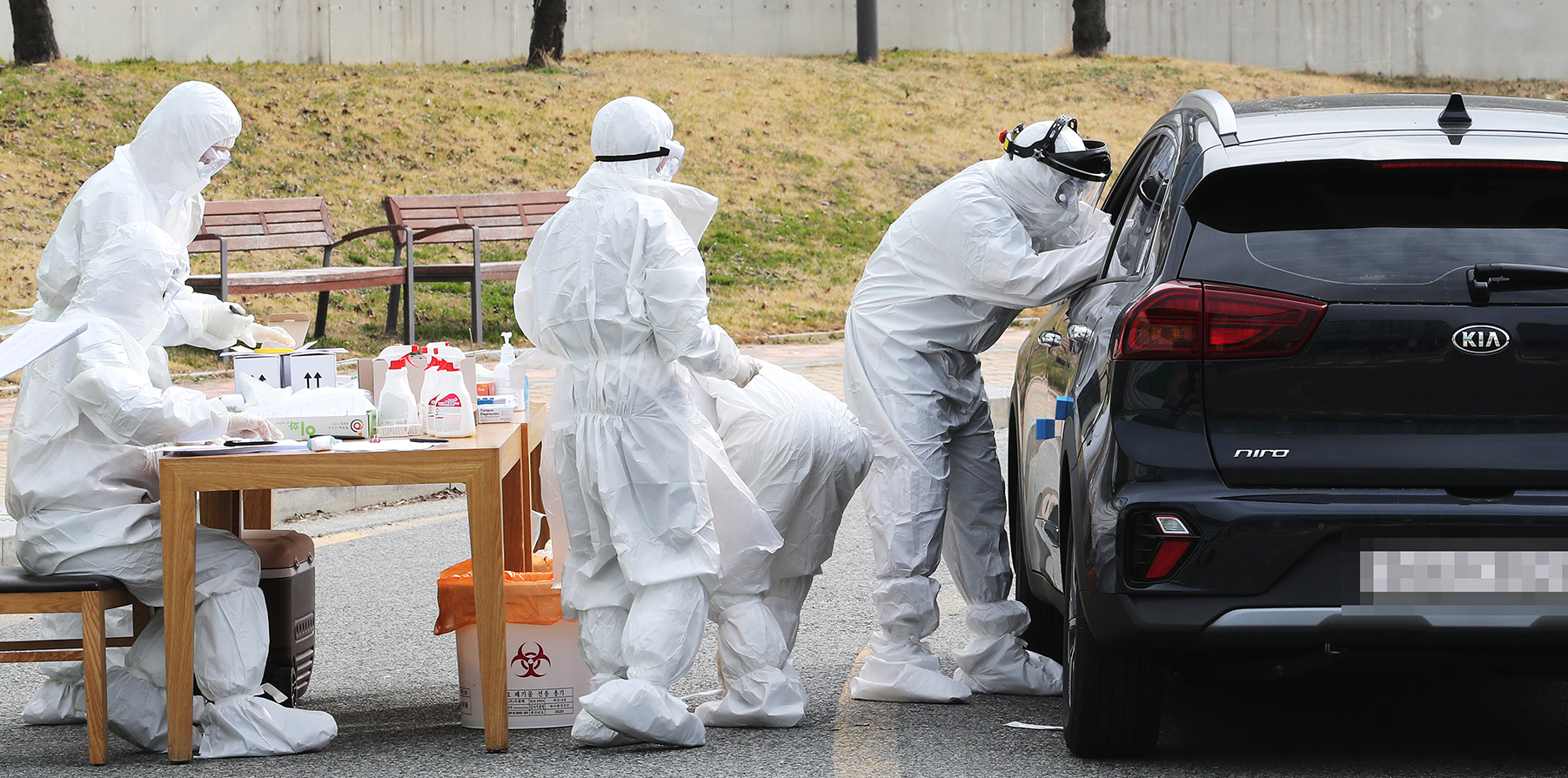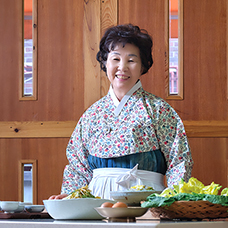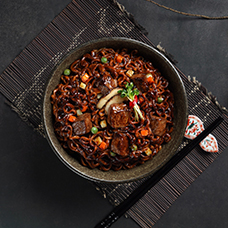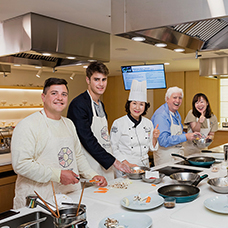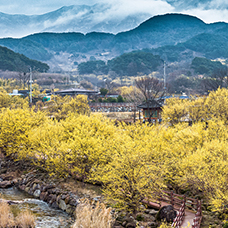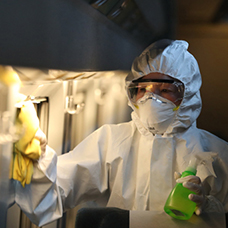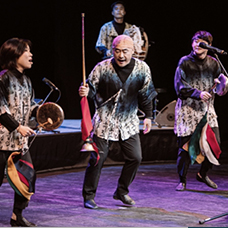Current Korea
Global Benchmark in Fight vs.
COVID-19
Countrywide Efforts Against a Pandemic
After the COVID-19 pandemic struck Korea, the Moon Jae-in administration almost immediately got extensive testing up and running and adopted a transparent and open approach to keep the public fully informed rather than resort to a lockdown like other countries. The world is thus hailing Korea as a role model for grappling with the contagion.
Written by • Sohn Ji-ae
A driver rolls down her car window and sticks out her tongue. Clinicians dressed from head to toe in white protective clothing swab the driver’s mouth and nose to take a sample. In a Seoul neighborhood, a person walks into a small makeshift booth and a doctor outside the booth swabs a sample from the person using gloves. The procedure takes under a minute.These two instances are examples of cutting-edge innovation seen across Korea, one of the worst-hit countries by the novel coronavirus disease (COVID-19) that the World Health Organization has designated a pandemic.
Aggressive Testing
Korea’s innovations of the drive-through screening clinic and the solo testing booth seek to simplify the time-consuming testing process and get people tested as quickly as possible.
Around 20,000 people in Korea are tested for the coronavirus every day, more than any other country. This has led to early detection of confirmed cases and minimized a further spread of the pandemic, not to mention allowing the nation to keep the fatality rate low.
The rapid and extensive testing the country has operated from the very beginning has made Korea a benchmark for other countries grappling with the pandemic.
Orders for Korea’s COVID-19 test kits are flooding in from all around the world. Cheong Wa Dae on March 17 said 17 countries had asked for such kits through government channels, and the first shipment of 51,000 units was sent to the United Arab Emirates.
Technology and Transparency
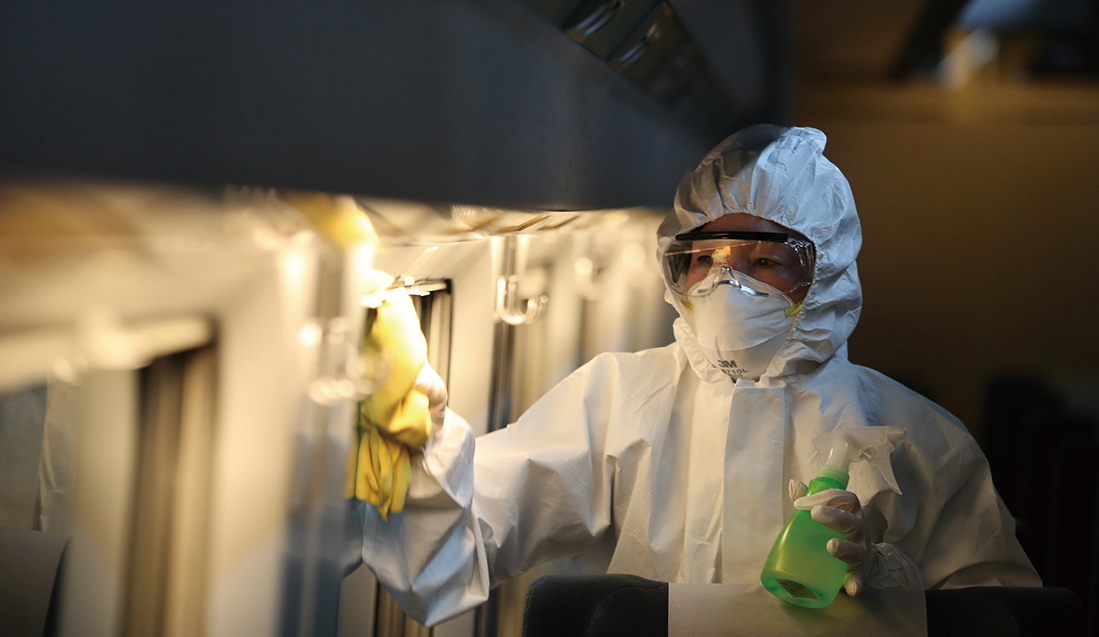
Disinfection is underway at one of KTX trains to prevent the spread of COVID-19. © Korea.net
As Asia’s most wired country, Korea is also hailed for its information and communications technology (ICT) that has helped contain the coronavirus.
The Korean government and domestic companies have cooperated to develop mobile apps that enable people as well as municipal authorities to keep tabs on the travel histories of those infected. High technology has also improved monitoring of those under self-quarantine, with an alert issued if they leave their quarantine zone.
More importantly, the government has kept the public fully informed on developments in the outbreak. It transparently and openly shares all data on confirmed cases, from surveillance camera footage and GPS tracking data from smartphones and cars to credit card transactions and other personal details via apps, government websites and text alerts.
Such efforts stressing transparency and openness have won the admiration of governments and media worldwide. Certain media have even praised the approach as the “success of democracies against the virus.”
The Washington Post on March 11 said, “It turns out that democracies are better suited to protect public health — at least, when they take advantage of their inherent strengths. One country is showing how it’s done: South Korea,” adding, “(Korea’s measures) focus on education, transparency and mobilizing civil society.”
Lessons Learned
The world sees Korea differently thanks to the latter’s effective approach toward the outbreak, with many nations saying they should learn from the country in dealing with not only the coronavirus, but health threats that appear later.
Among the comments online praising Korea include “Koreans are amazing with how they came together like this in a crisis. The world has a lot to learn” and “I think Korea can defeat the virus not only by technology but also by community spirit. I wish this becomes the hope to the people in the world.”
Fighting adversity and hardship has been a crucial part of the Korean identity for millennia, and thus the pandemic, while by no means over soon, is highlighting to the world the resiliency and resourcefulness of the Korean people.

